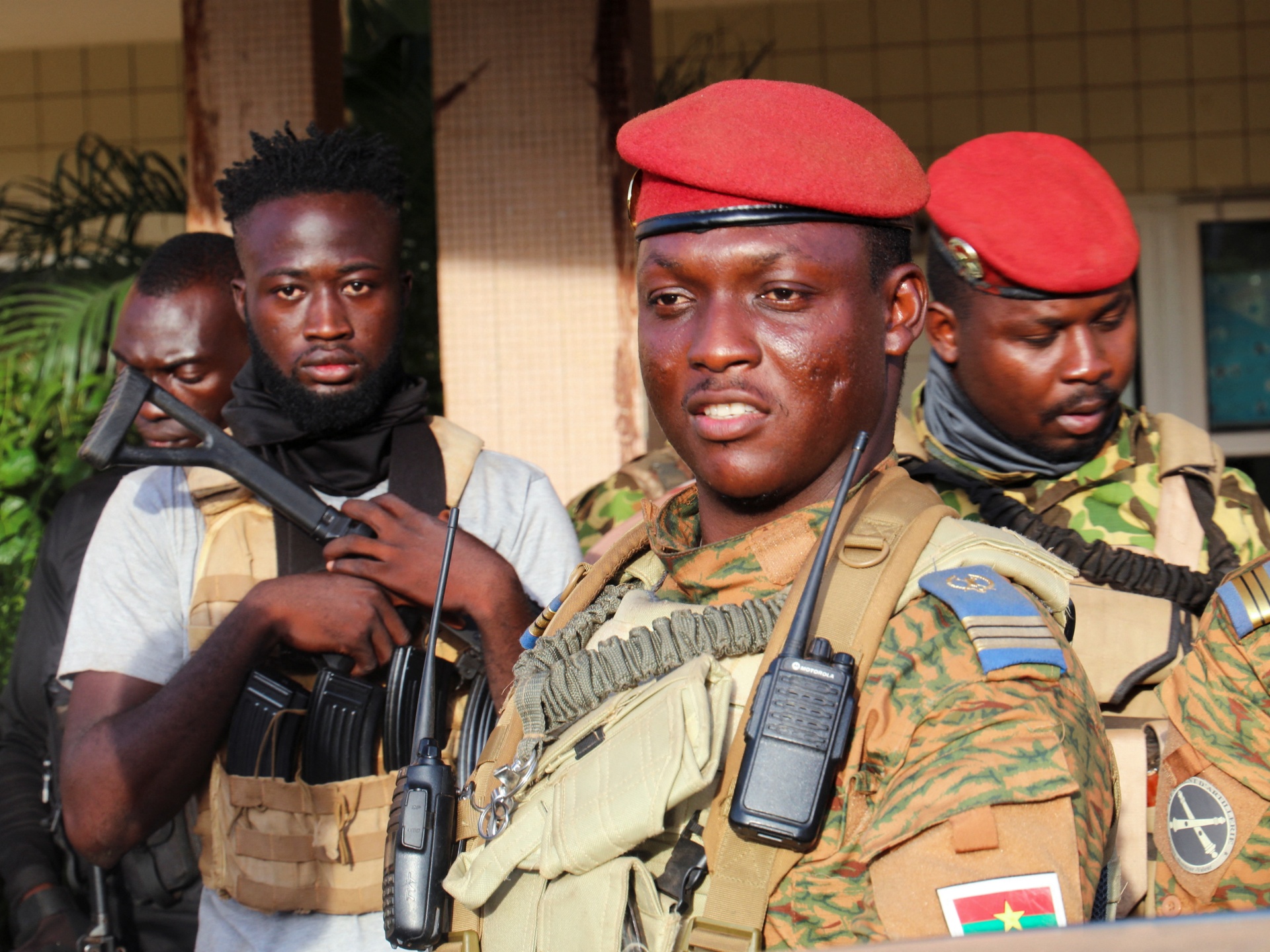Relations between Paris and Ouagadougou have deteriorated sharply since the Burkinabe military seized power in a coup in October.
Burkina Faso’s military government has suspended France 24 broadcasts after the TV station aired an interview with the head of al-Qaeda’s North African wing.
The news channel this month aired the interview with Yezid Mebarek, also known as Abu Ubaydah Yusuf al-Anabi, who claimed the title of “emir of al-Qaeda in the Islamic Maghreb” (AQIM) in 2020 after a French raid killed his predecessor.
By interviewing the head of AQIM, “France 24 is not only acting as a mouthpiece for these terrorists, but worse, it is providing a space for the legitimisation of terrorist actions and hate speech,” Burkina Faso’s minister of communication, Jean-Emmanuel Ouedraogo, said in a statement on Monday.
In response. the channel said the move was based on “unfounded accusations”.
“The channel never gave him the floor directly,” France 24 said in a statement on Monday, adding it chose to only report what the interviewee said through a studio conversation with one of its journalists.
Relations between Paris and Ouagadougou have deteriorated sharply since Burkina Faso’s military seized power in a coup in October.
In December 2022, Ouagadougou suspended broadcasts of Radio France International, a radio station also funded by the French government, over what it called false reports and giving voice to armed groups.
A month after, Burkina Faso gave France, its former coloniser, one month to withdraw its troops as it ended a military accord that allowed French forces to fight armed groups on its territory.
In recent years, there has been a rise of anti-French sentiment across parts of Central and West Africa, some of which used to be under French colonial administration even as recently as half a century ago.
In March last year, neighbouring Mali also moved to suspend broadcasts by France 24 and French state-funded international RFI radio, accusing the news outlets of reporting “false allegations” that the army killed dozens of civilians. Those allegations were made by the United Nations and Human Rights Watch, a United States-based human rights group.
